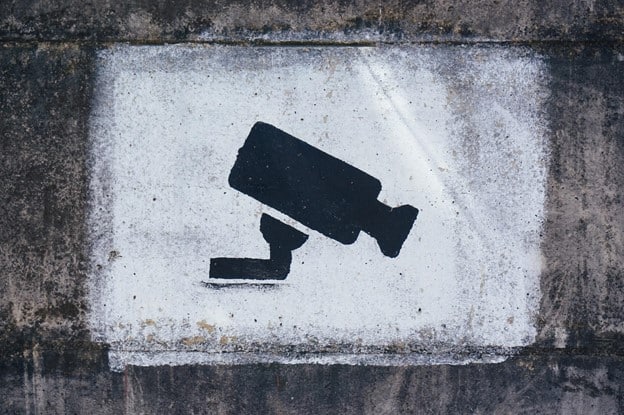Global Smart Cities Trends and Why We Should Be Worried About Privacy
Global Smart Cities Trends and Why We Should Be Worried About Privacy
More and more people are relocating to urban areas in search of better living standards. In fact, it’s estimated that 68% of the world’s population will live in cities by 2050. With more people to serve and a rapidly degrading climate, effective resource usage and public service efficiency have become pressing issues for urban areas. And, since cities consume about two-thirds of the world’s resources while creating just as much of global carbon dioxide emissions, they have a responsibility to be sustainable. One of the best and most effective ways for cities to improve and optimize city life is by adopting technology to become smart cities.
A smart city is one that uses networks, IoT sensors, applications, and other electronic methods to gather relevant data. Insights gained from the data are then used to manage resources, improve city services, and generally ensure citizen well-being. In short, smart city technology makes cities more efficient and effective, thus making everyday life easier and better for residents while maximizing resource usage.
Benefits of Smart Cities
There are so many benefits to adopting smart city technology, from cost savings to efficiency gains, economic prosperity, connectivity, improved life quality, and more. Here’s a look at the major smart city technologies, together with the benefits of using each tech:
Smart Transportation Solutions
Many major cities are characterized by inefficient transportation, which often leads to excess traffic, time wastage, increased harmful emissions, reduced safety and security on the road, and more. A major benefit of smart cities is the ability to monitor traffic patterns, including large volumes of traffic and dangerous areas, through sensors located in the cars. This is also made possible with smart traffic lights as they have cameras that monitor traffic flow, which is then reflected in traffic lights, and optimized to relieve congestion during peak hours.
There are also sensors in public transportation that send real-time data to the city transportation management software, alerting the system of traffic congestion or delays. With city buses and/or trains becoming connected, people can have real-time information on when a bus/train will arrive at the bus stop/train station.
Another key area that has seen improvement is parking. By making parking smarter, cities are able to reduce the cost of monitoring parking while still capitalizing on additional revenue streams. They are also able to reduce congestion and overall vehicle-related space needs, which in turn expands the land use for development. Residents will also spend less time looking for parking spaces.
Another great trend is the growing shift to electric cars, which reduces carbon emissions and benefits all in the long run.
Huge traffic is a major nuisance of city life but technology offers some great solutions that will significantly enhance efficiencies throughout the city through improved traffic management.
Smart energy
Smart cities are characterized by the smart management of their resources, starting with energy. Major cities are experiencing the challenge of efficient energy usage given the increasing demand and the low supply. This is something smart cities don’t have to worry about since they implement a number of IoT solutions for smart energy management. For starters, the implementation of smart grids and smart meters allows utility companies to analyze power consumption in real-time. Using this data, they can predict periods of heavy and low usage and adjust energy distribution accordingly. There is also the implementation of renewable energy sources like solar panels, which lower energy costs and also reduce environmental footprint. Solar energy plants often install smart sensors to check the panels for maintenance to ensure maximum functionality.
Lighting in urban areas is ubiquitous. And, smart cities are revolutionizing urban lighting infrastructures with energy-efficient LED lighting that also has the capacity to collect and share data.
Another way smart cities enhance energy services is by installing smart HVAC systems as they can monitor various parameters to ensure efficient heating, cooling, and ventilation.
Aside from energy, water is another scarce resource in urban areas. Luckily, smart cities have IoT and connected devices to enable smart water management. This includes smart sprinkler systems, smart water grids, and portable water monitoring.
Installing air quality sensors around a city tracks peak times of low air quality and identify the cause(s) of pollution. Such data can help city officials develop action plans to minimize air pollution.
Smart safety and security systems
One of the biggest concerns for any city is ensuring the safety and security of its residents given the increasing levels of insecurity in urban areas. Smart cities are able to monitor their residents using CCTV cameras that are often installed across the city. CCTV isn’t a new concept, but the inclusion of smart cameras that feature facial recognition can help to quickly identify criminals. Some come with added features like alarms that can alert the relevant authorities like the police or fire department, thus allowing them to respond faster to emergencies.
Sensors can be implemented across the city, especially in risky areas that are prone to accidents or crime. Upon detecting unusual activity (a fire, theft, accident, and more) these sensors can alert the relevant authorities, as well as nearby citizens to avoid the area.
The intelligent street lights will not only light up the city for enhanced security but also come equipped with a surveillance camera(s).
Other technologies like license plate recognition, connected crime centers, gunshot detectors, and body cameras can give law enforcement an edge while on the job. Last, but not least, applications using real-time mapping use statistical analysis to detect crime patterns and identify problematic zones, thus allowing the police to reinforce security in such areas.
City-wide Wi-Fi
The biggest factor that builds a smart city is connectivity. Without a strong internet connection between these and many other smart city technologies, the IoT devices are rendered obsolete. Wi-Fi connections and 3G/4G networks enable thousands, if not millions, of connected devices to communicate and transmit data without a hitch.
5G technology is set to dominate these coming years seeing as it’s the latest trend in the network and communications advancements. It offers several major benefits like higher bandwidth, adaptability, energy efficiency, delivery and performance guarantees, as well as real-time capabilities. With a more reliable connection and faster speeds, the 5G network acts as a strong link between smart city technologies like IoT and ICT, which is very instrumental in the efficiency of such cities. In short, speedier and more reliable Wi-Fi translates to a faster city.
Smart Cities in Different Countries
Many cities around the world are already implementing smart city technologies with others being far along than others. Here are some of the leading smart cities across the globe:
Copenhagen, Denmark
Denmark is a world leader in eco-friendly initiatives with some of the most advanced climate policies. The city of Copenhagen has implemented several smart city initiatives that keep in line with the country’s green ambitions. Their main project is the Copenhagen Connecting, which involves tracking connected devices across the city and using the information gathered to optimize traffic, reduce air pollution, reduce congestion, and more. It also uses RFID tags to manage assets such as home equipment, vehicles, and even bikes to prevent theft. The Copenhagen Solutions Lab also monitors traffic, energy use, waste management, and air quality, which in turn helps to drive better efficiency in service delivery.
Columbus, Ohio
The Smart Columbus Operating System is what makes Columbus a smart city. It collects data from public, non-profit, and private sectors that enables real-time decision making in different areas of city life, including traffic management, water, waste management, and health care. It also gives residents access to information like traffic conditions. Last, but not least, there are autonomous electric transportation in specific areas.
Singapore, Singapore
There are lots of sensors across this city-state that aim to digitally collect information on what residents do daily. The data is then fed into Virtual Singapore –an accurate 3D model of the city –thus allowing city management to view multi-system effects and address issues of safety, mobility, health, productivity, and more. Another great project in Singapore is the Vehicle to Everything, which creates a system that connects all elements of the city’s transportation infrastructure, thus managing traffic, reducing congestion, and improving road safety.
Dubai, UEA
The Smart Dubai Initiative aims to integrate public and private sectors to enable residents to access both sectors via their smartphones. Nearly 90% of all government services are now digitalized and accessible via the DubaiNow app. There’s also a monitoring system of bus drivers using AI, which has significantly lowered traffic accidents caused by fatigue.
Barcelona, Spain
This city has tons of smart initiatives that land it on this list. For starters, Barcelona strives to have city-wide free Wi-Fi coverage with residents being able to access free Wi-Fi from nearly everywhere in the city. It also makes good use of IoT technologies like smart sensors to help with traffic and energy management. Local administrations have also created a number of apps that citizens can use to access information and engage in what’s going on in the city.
Oslo, Norway
The Norwegian capital aims to create a sustainable, eco-friendly environment. It is embracing a wide use of smart sensors that can monitor and control lighting, heating, cooling, waste management, security, and more. The city also aims to cut emissions by adopting electric cars with over 2,000 EV charging stations across the city.
How Is Data Collection And Analysis Crucial For These Technologies?
Smart cities use various sensors to monitor what is happening in real-time while collecting information from people, their IoT devices, ICT, and other relevant points. The accumulated data is then analyzed and used to make better judgments and ultimately more accurate and effective decisions for the betterment of a city. Data can also be sent to other smart devices to influence their actions.
In short, various streams of data from multiple sources come together to give a more vivid and accurate picture of what’s happening in a city. And, both real-time and historical data are combined to help make more accurate decisions. By being able to see what’s happening all across the city and integrating real-time information into a city’s decision-making models, a smart city is able to maximize its resources, provide better services, reduce costs, boost efficiency, and do much more.
Privacy Concerns
Despite the many benefits that come with smart city technologies, there are a few things we need to be cautious about. One of the biggest areas of concern is the impact it has on the privacy of citizens. The very nature of smart cities involves collecting, analyzing, and storing lots and lots of data that may relate to individuals. More data means better analysis of the city’s current state, which in turn leads to better decision-making by city officials.
The extreme version of a smart city often involves surveillance of almost every human interaction and building up detailed profiles of citizens. Every touchpoint, therefore, becomes a potential source of data, including cameras, household items, vehicles, hardware, smartphones, refuse bins, etc.
If this data is leaked or stolen, it poses a huge threat to the persons involved. For instance, if one’s location is exposed, criminals can use that information to rob their homes and sexual predators would do the unthinkable. Leaked data can also be used for identity theft or to steal from a victim’s bank account. Then, there’s the fear of home devices being hacked and personal data is not all cybercriminals are after. These cyber-attacks are becoming more personal with cases of laptop cameras being hacked so they can record us without knowing, children’s toys that record conversations, and many more scary things.
The Future of Smart Cities
There’s no disputing that collecting and analyzing data is quite useful for optimizing a city’s services. How else would city officials figure out the best route for a new bus line and other relevant issues? Cities need to collect data to allow for informed decision-making that will make them more efficient and convenient for their residents. And, with the right approach, smart cities can offer improved services and a better quality of life without breaching one’s privacy.
For starters, smart cities should be carefully designed with necessary protections in place to safeguard their citizens. Cybersecurity technology, standards, and operations must be designed into any smart city initiative from the outset. Endpoint security should, particularly, be a priority given how much smart cities rely on connected devices. That’s because a single breach can become a gateway to an entire network attack.
Transparency is also key. Government bodies and corporations that collect data must be open about everything that concerns citizens. This means being transparent about what data is collected, the intended purpose and lifecycle, and the cybersecurity measures that they have put in place to keep citizens’ data safe and secure.
Even if governments and corporations use the data they collect in a way that honors user privacy, your data is still vulnerable to breach in cyber attacks. The good news is there are several ways you can protect your privacy online, especially when using public networks. For starters, you can ensure privacy using a VPN app. This will encrypt any data you send over the internet, thereby shielding your online activity from prying eyes. Data encryption prevents attackers from accessing your data in case of a breach and allows you to browse anonymously. Additionally, ensure you use strong passwords, update software, use two-factor authentication, install a firewall, etc.
Conclusion
The shift towards smart city technologies is inevitable, especially in urban areas that want to effectively manage the increasing populations. We should, therefore, not fight the idea of smart cities but instead, advocate for carefully designed smart cities that feature all the necessary protections to safeguard their residents.
Pages: 1 2












